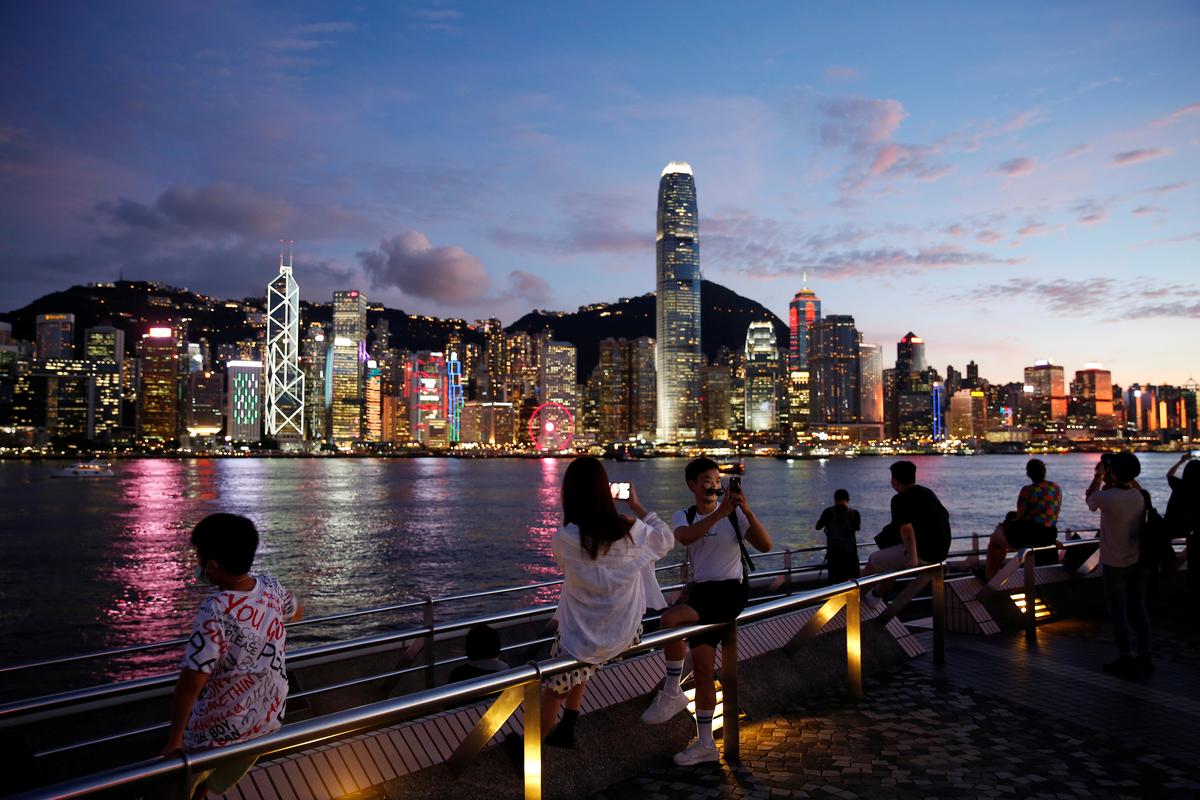Factbox: What people are saying about Hong Kong’s national security law

HONG KONG (Reuters) – China has unveiled details of its sweeping national security legislation for Hong Kong, signalling the most profound change to the city’s way of life since it returned to Chinese rule in 1997.
FILE PHOTO: People enjoy the sunset view with a skyline of buildings during a meeting on national security legislation, in Hong Kong, China June 29, 2020. REUTERS/Tyrone Siu
Under the law, which will see mainland security agencies based in Hong Kong officially for the first time, the crimes of secession, subversion, terrorism and collusion with foreign forces can be punished with up to life in prison, heralding a more authoritarian era for the Asian financial hub.
Here is what people are saying about the law:
Claudia Mo, opposition lawmaker:
“When they say ‘day is night and dark is light’ you just can’t argue because they are the law. But this is not the rule of law, this is not even ruled by law. This is rule by decree. Because anything that’s up to their interpretation. The free press could just be announced dead in Hong Kong.
“This would tell you that they want not just to get us, but to intimidate us into inaction into a catatonic state. And the fact that they would put down in black and white that they would strengthen … the management and over the foreign media in Hong Kong is another dire warning.”
Cheng Keng-ieong, district councillor:
“I’m just standing here. If I get arrested so be it. I’m not scared. The worse part of the laws is that the Hong Kong government has opened the door for China to come in and manipulate our laws.”
Joshua Rosenzweig, deputy regional director at Amnesty International:
“The definition of the crimes, separatism, subversion, terrorism, collusion with foreign forces … all of these things, in our view, are open to abuse by authorities and could possibly be used to punish people for things that should be protected activities, particularly things related to freedom of expression, freedom of peaceful assembly.
“We’re quite worried about what this law means in terms of not only the scope to which law enforcement may further restrict rights for people in Hong Kong, but also the power it gives to the authorities, both the Hong Kong authorities and central government authorities to punish those types of activities.”
Protester identified as Fung, 61, with her daughter:
“I came out because of the national security law passed last night. It’s my first protest this year. The law just made us feel more disgusted about the government and regime. It won’t stop us from coming out. I’m not worried about arrest, I’ll keep chanting the slogans.”
Male protester identified as Seth, 35:
“I’m scared of going to jail but for justice I have to come out here today. I have to stand up. The authorities can now arrest any Hong Kong person without much investigation or reason. There’s a lack of transparency in the national security laws.”
Protester who identified himself as Alex, an artist:
“It’s Hong Kong’s darkest hour. Everyone is scared, but we have to come out. We can’t let them slaughter us.”
Hugo Au, 26, hospitality industry worker:
“I believe the public have not had enough time to understand the content of the law and may be confused about what they can do and what they cannot do. I believe they are confused, there is confusion about the law.
“People, certainly, will become less active in public actions like demonstrations.”






